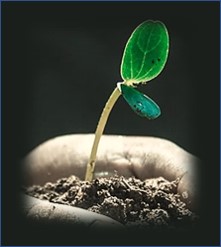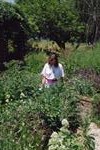Become a Permaculture Consultant - develop your knowledge and your business.
 Expand your knowledge and skills to underpin a permaculture business.
Expand your knowledge and skills to underpin a permaculture business.
- Compliment existing experience and knowledge, exploring different ways to apply it in a permaculture context.
- Choose from a diversity of electives to develop specialised skills that differentiate you from other permaculture professionals.
- This course gives you the standard PDC but goes well beyond - more than 8 times what you would do in a standard PDC. This gives you a significant advantage starting out as a consultant.
Permaculture is a growing movement worldwide that revolutionises the way we manage the environment around us to maximise the use of energy to increase food production and environmental health. Permaculture courses are in demand as are skilled consultants. This is a great course for those already practising permaculture and wanting to take the next step.
COURSE STRUCTURE AND CONTENT
Course Duration: 600 hours.
Start Date: Start at any time - study at a pace that suits you, and with full tutor support for the duration of your studies.
Content: Study three Core Modules and then choose three Elective Modules. Details of the Core and Elective Modules are given below. Follow the links in the module titles to access the web page for each.
This course develops very broad skills, pertaining to sustainability, but with a particular focus on permaculture. There are many different ideas about how to be more sustainable. You will find different people promoting different concepts with great vigour and enthusiasm, and in most cases, these concepts will have something valuable to teach you. Many are quite similar in approach, often being just variations of a similar theme. Each approach will have its application, but because it worked for someone else does not necessarily mean it will work for you. As you study, you will discover different approaches and concepts and learn when and how to apply the most appropriate of these.
PERMACULTURE
 The term “Permaculture” is derived from the idea of “permanent agriculture”.
The term “Permaculture” is derived from the idea of “permanent agriculture”.
In its strictest sense, Permaculture is a polyculture system of agriculture based on perennial or self-perpetuating plant and animal species which are useful to man. In a broader context, Permaculture is a philosophy which encompasses the design and establishment of environments which are harmonious, highly productive and stable. These environments provide food, shelter, and energy, as well as supportive social and economic infrastructures, in a sustainable manner.
In comparison to modern farming techniques practised in most modern civilisations, the key elements of Permaculture are low energy and high diversity inputs. The design of the landscape, whether on a suburban block or a large farm, is based on these elements. It also takes ethical issues into consideration.
Design is required to place plants, structures and animals in relation to each other so that their functions and yields are enhanced. Permaculture design skills include observation, deduction, analysis, mapping, pattern reading and experience.
Low Input Farming Systems
This approach is based on the idea that a major problem is depletion of resources. If a farmer uses fewer resources (e.g. chemicals, fertiliser, fuel, money, manpower), farm costs will be reduced, there is less chance of damage being caused by waste residues or overworking the land and the world is less likely to run out of the resources needed to sustain farming.
Regenerative Farming Systems
This seeks to create a system that will regenerate itself after each harvest. Techniques such as composting, green manuring and recycling may be used to return nutrients to the soil after each crop. Permaculture is currently perhaps the ultimate regenerative system. A Permaculture system is a carefully designed landscape which contains a wide range of different plants and animals. This landscape can be small (e.g. a home garden), or large (e.g. a farm) and it can be harvested to provide such things as wood (for fuel and building), eggs, fruit, herbs and vegetables, without seriously affecting the environmental balance. In essence, it requires little input once established, and continues to produce and remain sustainable.
Biodynamic Systems
This approach concentrates mobilising biological mechanisms. Organisms such as worms and bacteria in the soil break down organic matter and make nutrients available to pastures or crops. Under the appropriate conditions, nature will help dispose of wastes (e.g. animal manures), and encourage predators to eliminate pests and weeds.
Organic Systems
Traditionally this involves using natural inputs for fertilisers and pest control, and techniques such as composting and crop rotation. In Australia and many other countries, there are schemes which "certify" produce as being organic. These schemes lay down very specific requirements, including products and farming techniques which are permitted, and others which are prohibited. In Australia, you can find out about such schemes through groups such as the Biological Farmers Association (BFA) or the National Association for Sustainable Agriculture (NASAA). See directory for addresses.
Conservation Farming
This is based on the idea of conserving resources that already exist on the farm. It may involve such things as identifying and retaining the standard and quality of waterways, creek beds, nature strips, slopes, etc.
Hydroponics
This approach involves separating plant growth from the soil, and taking greater control of the growth of a crop. This increases your ability to manage both production and the disposal of waste. Hydroponics is not a natural system of cropping, but it can be very environmentally friendly. A lot of produce can be grown in a small area; so despite the high establishment costs, the cost of land is much less allowing farms to operate closer to markets. In the long term, a hydroponic farm uses fewer land resources, fewer pesticides, and is less susceptible to environmental degradation than many other forms of farming.
Matching Enterprise with Land Capability
Some sites are so good that you can use them for almost any type of farming enterprise, for any period of time without serious degradation. Other places, however, have poor or unreliable climates or infertile soils and might only be suitable for certain types of enterprises or certain stocking or production rates. If you have a property already, only choose enterprises that are sustainable on your land.
Genetic Improvement
This principle involves breeding or selecting animal or plant varieties which have desirable genetic characteristics. If a particular disease becomes a problem, you select a variety that has reduced susceptibility. If the land is threatened with degradation in a particular way, you should change to varieties that do not pose that problem.
Polycultures
Many modern farms practise monoculture, growing only one type of animal or plant. With large populations of the same organism, though, there is greater susceptibility to all sorts of problems. Diseases and pests can build up to large populations. One type of resource (required by that variety) can be totally depleted, while other resources on the farm are under-used. If the market becomes depressed, income can be devastated. A polyculture involves growing a variety of different crops or animals, in order to overcome such problems.
Integrated Management
This concept holds that good planning and monitoring the condition of the farm and marketplace will allow the farmer to address problems before they lead to irreversible degradation. Chemical pesticides and artificial fertilisers may still be used, but their use will be better managed. Soil degradation will be treated as soon as detected. Water quality will be maintained. Ideally, diseases will be controlled before they spread. The mix of products being grown will be adjusted to reflect changes in the marketplace (e.g. battery hens and lot-fed animals may still be produced but the waste products which often damage the environment should be properly treated, and used as a resource rather than being dumped and causing pollution).
Highly topical and highly relevant - Permaculture embraces values and concepts that point towards a more ecologically focussed and sustainable future for our planet. As such, the demand for consultants in Permaculture is only set to develop and grow further.
HOW THE COURSE WORKS
You can start the course at any time.
It is studied by distance learning, so you can study in the comfort of your own home. But this doesn't mean you are all alone in your studies. Our highly qualified and friendly tutors are there to help you every step of the way. If you have any questions at all, they are always happy to help.
Each lesson includes set tasks, and is completed with an assignment which the student submits to their course tutor. The tutor will mark the assignment and return this to the student with comments and suggestions for further reading.
HOW THE CERTIFICATE IS ASSESSED
The Certificate In Permaculture Consulting requires around 600 hours of study. This is made up of six 100-hour modules.
To pass the course –
1. Pass all assignments on the six 100-hour modules. There will be an assignment at the end of each lesson to submit to your tutor for marking and feedback.
2. Pass six examinations – one on each module. These are usually taken at the end of the module and can be arranged at a time and location to suit you.
STUDYING WITH ACS
Quality courses - expert tuition - unlimited support.
At ACS we provide you with more than just a set of course notes.
Your 'learning package' includes:
- Course notes.
- Self-assessment quizzes.
- Assignment feedback.
- You can interact one on one with a professional tutor with decades of experience - just email, phone or log on to chat to connect with them.
Enrolling is easy - just select your payment option and study method - choose the online option for a 5% discount on the course cost.
Any questions?
Our tutors are more than happy to help and advise you with any questions regarding the course. Please contact us if you have any questions at all.
If you want to develop your knowledge of permaculture and become a teacher or consultant, then this is an ideal course for you. Study in your own home and learn more about permaculture and sustainability. Why delay? Get started today.